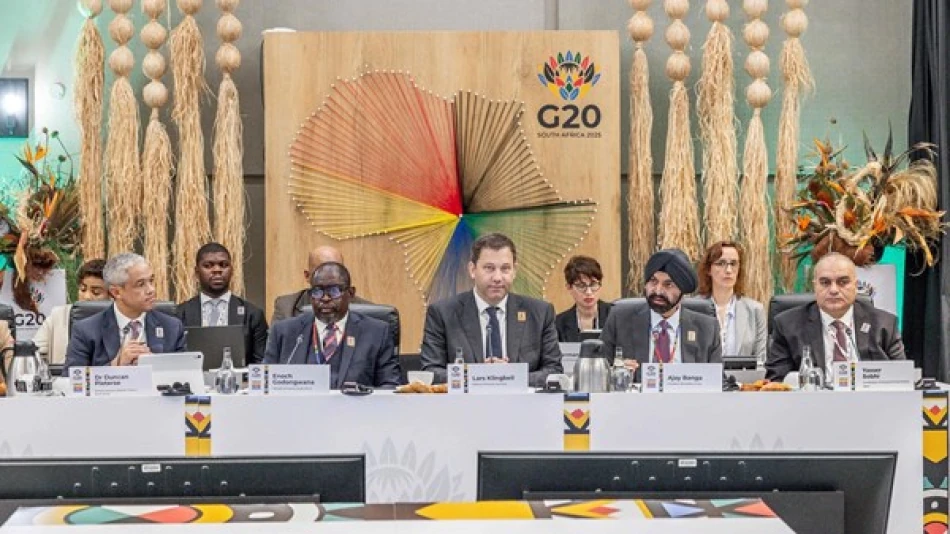
South Africa Warns: Global Disruptions Jeopardize Development Goals
South Africa's G20 Presidency Sounds Alarm on Global Trade Wars and Geopolitical Risks
South Africa, the first African nation to assume the G20 presidency, has issued a stark warning about mounting threats to global economic growth, citing rising trade barriers and emerging geopolitical risks as key concerns. The country is leveraging its historic leadership position to push debt sustainability and climate resilience for developing nations to the forefront of international economic policy.
A Continental First Takes on Global Challenges
Finance Minister Enoch Godongwana opened the two-day G20 finance ministers' meeting near Durban with a sobering assessment of the world economy. Despite gradual inflation slowdowns and signs of financial stability in some regions, he emphasized that uncertainty continues to cast heavy shadows over global economic growth prospects.
The minister specifically highlighted "rising trade barriers, persistent global imbalances, and new geopolitical risks" as sources of major concern. These challenges, combined with climate change impacts, threaten to make achieving sustainable development goals "more difficult and distant."
Strategic Timing and African Priorities
South Africa's presidency comes at a critical juncture. The country represents the G20's first African leadership at a time when the continent faces mounting debt pressures and climate vulnerabilities. By prioritizing debt sustainability and climate resilience for developing nations, Pretoria is positioning itself as a bridge between advanced economies and the Global South.
This approach mirrors similar strategies employed by other emerging market G20 presidencies, but with a distinctly African lens that emphasizes the continent's unique development challenges.
Multilateralism Under Pressure
Godongwana's call to "revive and strengthen multilateralism" reflects growing concerns about the fragmentation of global economic cooperation. The minister argued that the G20 has "a fundamental role in encouraging collective action to address global challenges that no single country can solve alone."
This message resonated with German Finance Minister Lars Klingbeil, who echoed similar sentiments during a Durban press conference. Germany, he noted, seeks to "strengthen partnerships within the multilateral global system" during this period of international turbulence and uncertainty.
Economic Implications for Markets and Policy
The warnings from G20 finance ministers signal potential headwinds for global markets and trade flows. Rising trade barriers—likely referencing increasing tariffs and export controls between major economies—could disrupt supply chains and increase costs for businesses worldwide.
For investors, the emphasis on geopolitical risks suggests continued volatility in currency markets and commodity prices. The focus on developing nation debt sustainability also indicates potential restructuring discussions that could affect emerging market bonds and sovereign risk assessments.
November Summit Sets High Stakes
The upcoming G20 leaders' summit on November 22-23 in South Africa will test whether the group—representing over 80% of global GDP through its member countries, the European Union, and African Union—can forge consensus on these pressing issues.
South Africa's presidency represents more than symbolic progress for African representation in global governance. It offers a platform to address structural inequalities in the international financial system while navigating the complex dynamics between established powers and emerging economies.
The success of this agenda will likely depend on whether major economies can move beyond their bilateral disputes to address shared challenges around climate finance, debt relief, and sustainable development—issues that disproportionately affect the Global South but require coordinated international responses.
Most Viewed News

 Layla Al Mansoori
Layla Al Mansoori






